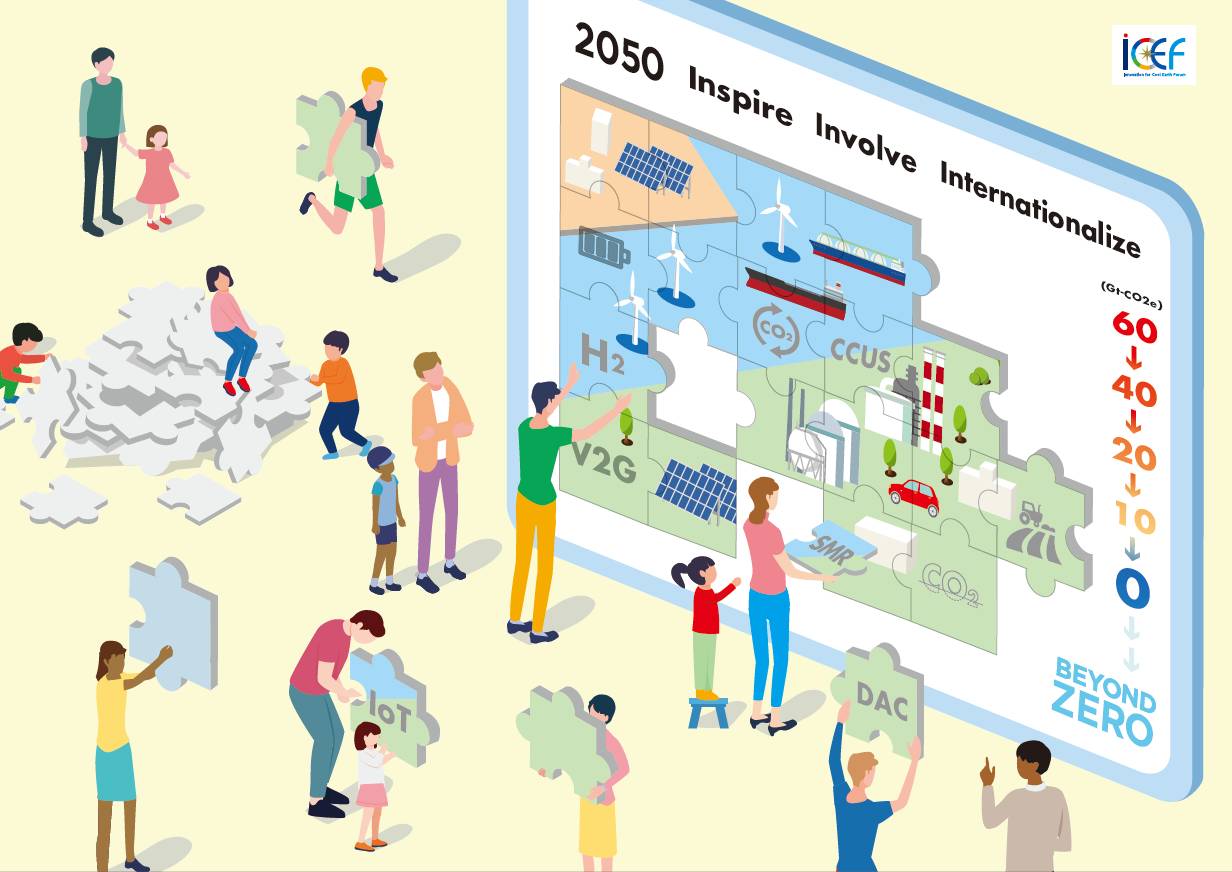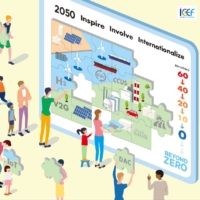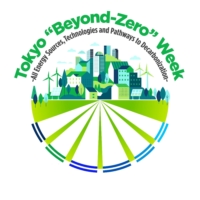In October 2020, Japan pledged to reach complete carbon neutrality by 2050. The following April, it announced it would target a 46% cut in greenhouse gas emissions by 2030 from 2013 levels. This means Japan is set to take a leading role in decarbonization on a global scale through the creation of innovative technologies and the sharing of knowledge that will allow other countries to find new ways of reducing their carbon footprint.
This will be done in combination with the “Beyond Zero” initiative, which goes beyond carbon neutrality and actively seeks to retroactively reduce carbon dioxide emissions.
During the first week of October, the Ministry of Economy, Trade and Industry (METI) held “Tokyo Beyond Zero Week 2021,” a series of eight international conferences focusing on a variety of important topics related to achieving carbon neutrality, including:
• Asia Green Growth Partnership Ministerial Meeting (debut)
• International Conference on Carbon Recycling (third meeting)
• Hydrogen Energy Ministerial Meeting (fourth meeting)
• LNG (liquefied natural gas) Producer-Consumer Conference (10th meeting)
• Task Force on Climate-related Financial Disclosures Summit (third meeting)
• International Conference on Fuel Ammonia (debut)
• Innovation for Cool Earth Forum (eighth meeting)
• Research and Development 20 for Clean Energy Technologies Leaders’ Session (third meeting)
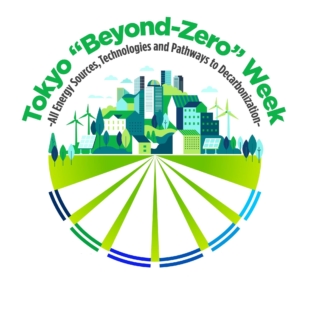
Speakers at these high-level conferences included Fatih Birol (executive director of the International Energy Agency), who participated in the majority of the sessions, and Michael Bloomberg (U.N. special envoy on climate ambition and solutions), who spoke at the ICEF. Martin Keller (director of the National Renewable Energy Laboratory of the United States) and other representatives from G20 research institutes spoke at the RD20 conference, and Mark Carney (COP26 advisor and U.N. climate ambassador) was present for TCFD Summit 2021. Many other experts also contributed to the discussions over the course of the week.
Six of the conferences had previously been held separately. However, in 2020 METI concluded that holding the various events during the same week would increase the usefulness and impact of each. This was the first TBZW.
“The various conferences addressed interrelated themes and issues, and we thought that holding these discussions at the same time in one location would make it easier for those attending to grasp the big picture,” pointed out Michihiro Kishimoto, deputy director-general for industrial science, technology and environmental policy at METI. “By setting one week to cover all aspects, we can ensure more cross-collaboration and improve attendance, as it was difficult for participants from outside Japan to fly in for each separate conference … and of course this drop in flights also cuts down on carbon dioxide emissions!”
In addition to the established conferences, TBZW 2021 saw two new opportunities for exchange debut: the Asia Green Growth Partnership Ministerial Meeting and the International Conference on Fuel Ammonia.
The Asian partnership is one example of how TBZW 2021 is going beyond Japan to reach the important goal of global carbon neutrality. “It is essential that both developed and emerging economies tackle the challenge together,” Kishimoto said. “But we have to take each country’s specific economic and geographical circumstances into account. This is why we want to include a variety of technologies and potential energy sources that can help countries transition more smoothly to carbon neutral options. There is not a single solution that suits every case.”
The International Conference on Fuel Ammonia ties into this mission, as according to Kishimoto, “Ammonia has great potential as fuel, which could be a good pathway for other countries with limited options for fuel to lower their carbon emissions.”
Japan shared its world-class technological expertise in hydrogen and ammonia-based energy and carbon recycling in individual conferences, and the TCFD conference on Oct. 5 discussed the financing needed to support these types of projects. “Having big dreams is great, but we need a strong base to succeed,” Kishimoto said. “To achieve our goal of a decarbonized society, we need a strong backing of research, funding and both governmental and private-sector involvement. Tokyo Beyond Zero Week is the place to set those foundations.”
After a year punctuated with recurring natural disasters across the globe, people and governments are now intensely aware of the threat the world is facing. “Climate change is not only an environmental issue, but also an economic one,” Kishimoto noted. The Japanese government wishes to show that it is also an opportunity to create breakthroughs and innovations that are not extensions of existing technologies, and to link them to new growth through the realization of a “virtuous cycle of economy and environment.”
TBZW 2021 was held both in-person and online. While this format was originally put in place as a COVID-19 prevention measure, the organizers found that it had many benefits. The recorded sessions have made it possible for those with busy schedules, such as ministerial-level officials and businesspeople, to watch the discussions when it suits them. Not only does this make the event more open to new audiences, it also encouraged higher-level discussions thanks to the presence of high-ranking officials who were unable to travel to attend.
Kishimoto is excited about the new potential solutions and business opportunities that arise from global cooperation and the discussions at TBZW. “This is the serious challenge of our time, and we must approach it from all angles. As Mark Carney, the former head of the Bank of England, famously said, ‘We need 50 shades of green,’ in order to encourage a timely transition to a carbon neutral world.”
The week of conferences ended just before the 2021 United Nations Climate Change Conference (COP26) in Glasgow. Japan will of course be taking part in this meeting, and plans to present the activities at TBZW as part of side events during the conference.
Asia Green Growth Partnership Ministerial Meeting
Promotes various pathways and partnerships to achieve green growth in Asian countries through country-specific energy transitions, as energy demand in emerging Asian markets will need to keep up with rapid economic growth.
URL: https://www.aggpm2021.org/english/

International Conference on Carbon Recycling
Discussions on carbon recycling by representatives of industry, academia and government in various countries. Participants share advanced technologies and concrete efforts and announce future action, while confirming innovation acceleration in strengthening international cooperation.
URL: https://carbon-recycling2021.go.jp/en/
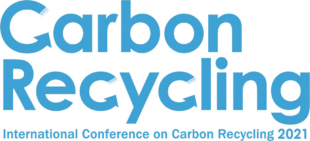
Hydrogen Energy Ministerial Meeting
Participants share their efforts in accelerating hydrogen-related initiatives. Thanks to the IEA’s Global Hydrogen Review 2021, participants can now access the most up-to-date information on global developments in hydrogen production and use to provide policy recommendations to decision-makers.
URL: https://hem-2021.nedo.go.jp/_en/
https://www.iea.org/reports/global-hydrogen-review-2021
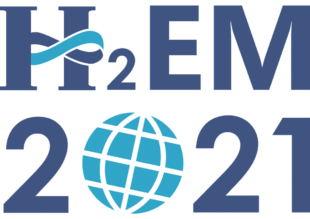
LNG (liquefied natural gas) Producer-Consumer Conference
Shares the latest developments in the use of liquefied natural gas, aiming to promote cleaner use of the fuel and cooperation between producing and consuming countries to develop a stable and flexible LNG market.
URL: https://www.lng-conference.org/english/

Task Force on Climate-related Financial Disclosures Summit
The TCFD summit promotes green finance for disruptive innovation to tackle climate change. Japan leads international discussions to help the task force’s recommendations get implemented to create a virtuous cycle of environment and growth.
URL: https://tcfd-summit.go.jp/indexEn.html

International Conference on Fuel Ammonia
The ICFA raises international awareness about the potential for ammonia as a fuel that does not emit carbon dioxide, and the need to establish a stable fuel ammonia supply chain. Japan shares its stance and builds a foundation for international collaboration.
URL: https://icfa2021.com/en/
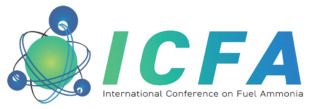
Innovation for Cool Earth Forum
The ICEF focuses on concrete and realistic discussions on how to achieve carbon neutrality by 2050, engaging leaders in industry, government and academia and focusing on five technological fields. Japan shares potential pathways to carbon neutrality in preparation for COP26.
URL: https://www.icef.go.jp/

Research and Development 20 for Clean Energy Technologies Leaders’ Session
RD20 gathers leading R&D institutes in Group of 20 member countries, providing an opportunity to exchange knowledge and best practices related to clean energy technologies, and to explore the potential for international collaboration and joint R&D projects.
URL: https://rd20.aist.go.jp/

This page is sponsored by the government of Japan.




